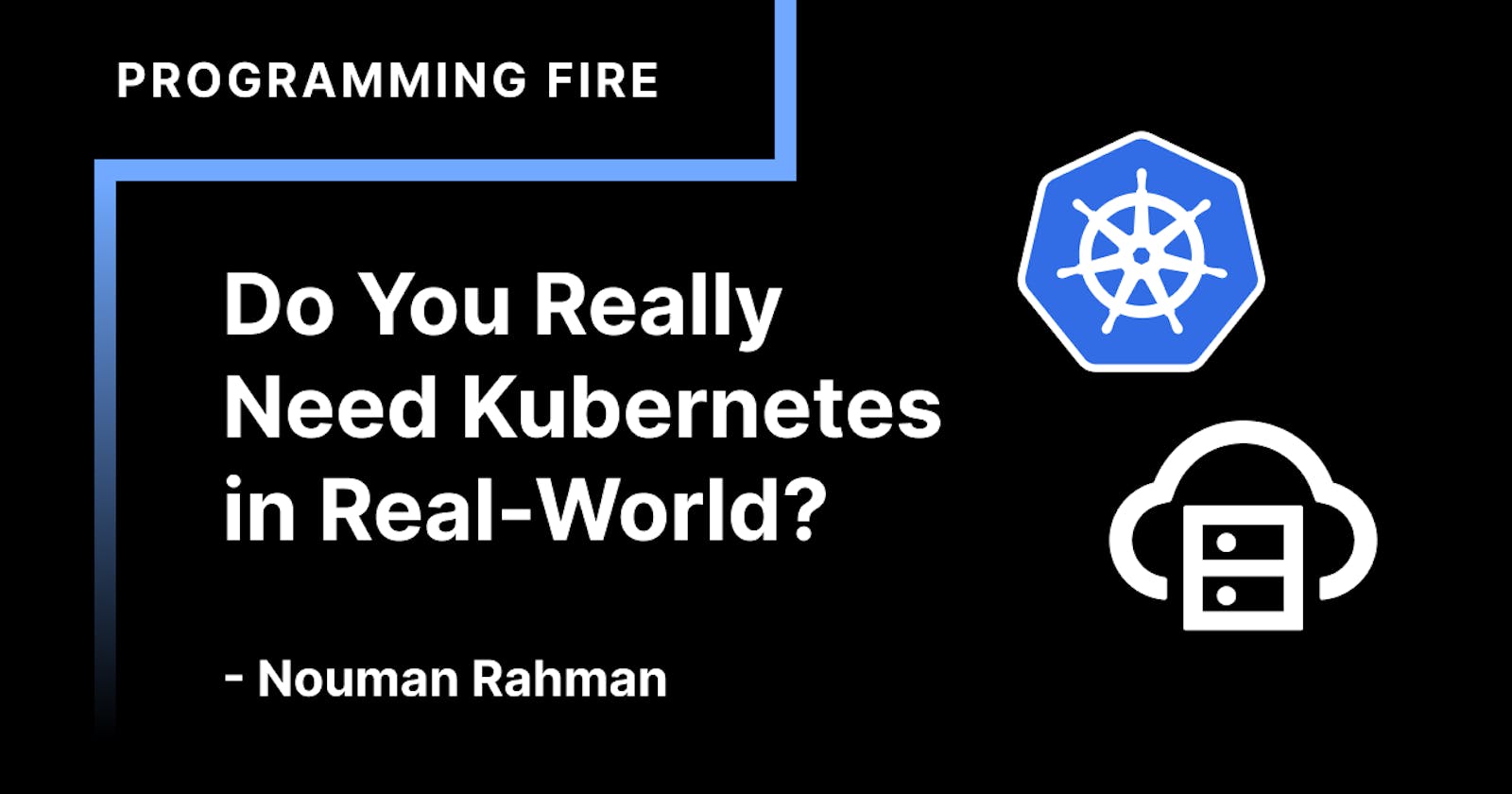If you're a developer, chances are you've heard of Kubernetes. It's become one of the most popular container orchestration platforms in recent years. But what is it, and do you really need it? In this article, we'll explore what Kubernetes is and some of the key benefits it can offer.
Kubernetes
Kubernetes is a container orchestration tool that can be used to manage and deploy containerized applications. It was originally developed by Google and is now an open-source project.
Kubernetes is often compared to other container orchestration tools, such as Docker Swarm and Apache Mesos. However, it is important to note that Kubernetes is not a container runtime; rather, it is a platform for managing containers.
While Kubernetes can be used to manage any type of containerized application, it is particularly well suited for deployments that are large in scale or complex in nature. For example, Kubernetes can be used to manage multiple microservices-based applications, which can consist of hundreds or even thousands of individual containers.
If you are considering using Kubernetes for your container deployment needs, there are a few things to keep in mind. First, while Kubernetes can be run on a single server, it is designed to be deployed on a cluster of servers. This means that you will need to have some infrastructure in place before you can start using Kubernetes.
Second, Kubernetes can be complex to set up and manage.
DevOps
If you're running a modern web application, it's likely that you're using some form of containerization to package your code and dependencies. And if you're using containers, there's a good chance you're using Kubernetes to orchestrate and manage your application. But do you really need Kubernetes?
There are pros and cons to using Kubernetes. On the plus side, Kubernetes can make it easier to manage and scale your application. It can also help with monitoring and logging and can provide some built-in security features. On the downside, Kubernetes can be complex to set up and manage and may be overkill for simple applications.
So, what's the verdict? Ultimately, it depends on your specific needs. If you have a complex application that needs to be highly available and scalable, then Kubernetes is worth considering. But if you have a simpler application that doesn't need all of those bells and whistles, then you might be better off without it.
What is Kubernetes?
Kubernetes is an open-source container orchestration tool that was originally designed by Google. It is used to automate the deployment, scaling, and management of containerized applications. Kubernetes has become the de facto standard for managing containerized workloads and is supported by all major cloud providers.
Pros and Cons of Kubernetes
There are many benefits of using Kubernetes to manage your containerized workloads. Some of these benefits include:
Increased efficiency: With Kubernetes, you can more easily deploy and scale your applications. This can lead to increased efficiency and cost savings.
Improved uptime: By using Kubernetes to manage your workloads, you can improve the uptime of your applications. This is because Kubernetes is designed to be highly available and to automatically recover from failures.
Enhanced security: Kubernetes can help to improve the security of your applications by providing features such as role-based access control and network isolation.
However, there are also some drawbacks to using Kubernetes. Some of these drawbacks include:
Complexity: Kubernetes can be complex to set up and manage. This complexity can make it difficult to get started with Kubernetes or to troubleshoot problems.
Limited tooling: There are relatively few tools available for managing Kubernetes clusters. This can make it difficult to find the right tool for your needs or to automate tasks.
vendor lock-in: Because Ku
How to decide if Kubernetes is right for you
There are a lot of factors to consider when trying to decide if Kubernetes is the right solution for you. Here are a few key points to keep in mind:
What are your application requirements? If your applications are stateless and can be easily scaled, then Kubernetes may be a good fit. However, if your applications are stateful or require a lot of custom configuration, then Kubernetes may not be the best solution.
How much experience do you have with containerization? If you're new to containers, then Kubernetes can be a steep learning curve. However, if you're familiar with containers and have some infrastructure experience, then Kubernetes may be a good option for you.
What is your budget? Kubernetes can be expensive to set up and maintain, so if you're working with limited resources, then another solution may be more cost-effective.
What are your development and operations teams' preferences? Ultimately, the decision of whether or not to use Kubernetes should be made by taking into account the preferences of both your development and operations teams. If one team is strongly opposed to
Conclusion
Kubernetes has a lot of benefits, but it's not right for everyone. If you're just getting started with containerization, you might want to start with something simpler like Docker Compose. Once you have a good understanding of how containers work and how to orchestrate them, you can decide if Kubernetes is the right tool for you.
